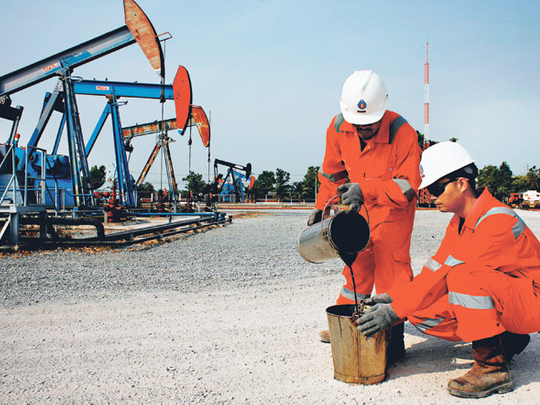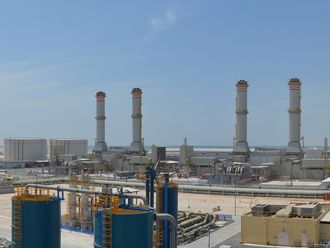
Dubai/Singapore: The strength of the global economic recovery and the winding down of government spending programmes are among the biggest tests for the oil market that experts will puzzle over at a meeting this week in Tokyo.
Governments have spent big on stimulus packages to revive sick economies during the global downturn.
The end of those injections, the risk of worsening inflation and tightening fiscal policy threaten a modest oil demand recovery in 2010 after two years in which the world has burned less fuel.
"In the short-term, uncertainty persists over the path of the economic recovery, the likely phase-down of stimulus programmes, and the extent to which genuine demand destruction has occurred [in developed countries]," David Fyfe, head of the oil industry and markets division at the Paris-based International Energy Agency (IEA), told Reuters.
China, the world's second-largest oil consumer, has burned more fuel even as global oil demand fell.
Fiscal tightening
However, it has already rattled global oil markets with measures pointing toward fiscal tightening that could slow both its economy and oil demand.
"There is a difficult balance to strike for governments, not to remove stimulus before ‘genuine demand' has recovered, while at the same time wanting to avoid a longer term build-up of debt and an overheating economy and artificially inflated energy growth," Fyfe added.
Investment bankers, oil firm executives, industry analysts and officials will tomorrow kick off the two-day meeting in the Japanese capital to discuss factors that affect prices in the world's largest commodity market.
Speculation in oil markets will also feature in Tokyo, the third in a series of price formation workshops held by the IEA, which advises 28 industrialised countries on energy. Previous sessions took place in Paris in 2008 and New York in 2004.
The debate over how speculation and fundamentals affect oil prices continues to rumble, although it is less intense than when oil prices hit a record high near $150 (Dh550) a barrel in July 2008.
"We have believed, and still believe, that financial flows do have an influence on prices," said Michael Wittner, global head of energy research at Societe Generale.
Energy firms watch Indian fuel pricing move
Energy firms are focused on India's moves to review fuel pricing, a long-awaited decision that will cut subsidy bills, revive competition in the transport fuel market and encourage efficient use of energy.
Easing controls, which may raise prices by about 10 perc ent, is a political minefield for the government that is facing protests over rising inflation but analysts are optimistic after India's move last week to ease controls on fertilisers.
Citigroup said in a report that the decision on fertiliser pricing could prompt similar steps for fuel prices.
"The government finally biting the bullet on the fertiliser front bodes well for the upcoming budget," it said.
India's budget on February 26 may set a roadmap to cut subsidies and ease controls on petrol, diesel, kerosene and cooking gas.
Any move to remove price controls will help Reliance Industries, which operates the world's biggest refining complex but exports most products as the local market is dominated by state firms that sell cheap fuel, helped by government subsidies.
Reliance had captured about 15 per cent of the retail diesel market in 2006, but it later shut down its pumps as global crude oil prices surged and the private-sector refiner was priced out by state firms.











